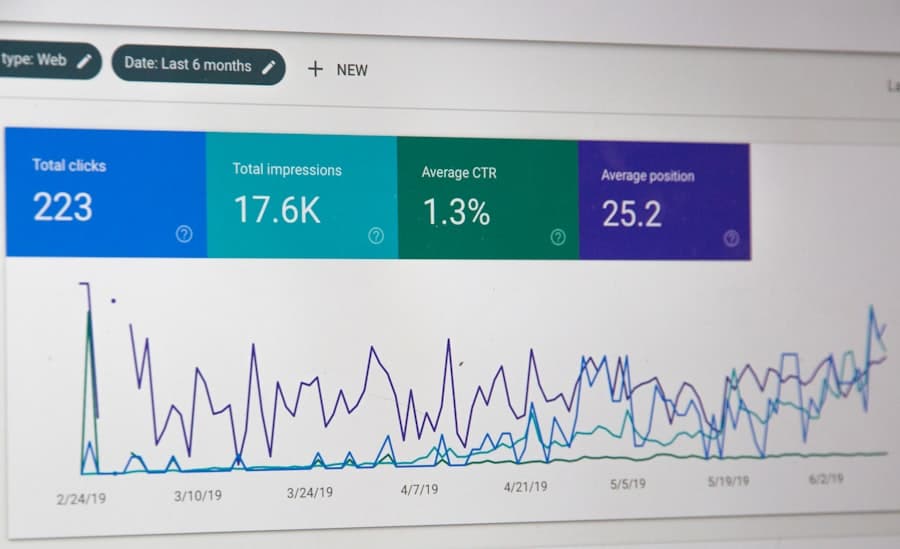The integration of artificial intelligence (AI) into mobile gaming has revolutionized the landscape of interactive entertainment, creating experiences that are not only immersive but also highly personalized. As mobile devices have become ubiquitous, the demand for engaging and dynamic gaming experiences has surged. Developers are increasingly turning to AI technologies to enhance gameplay, tailor experiences to individual players, and analyze vast amounts of data to refine their offerings.
This shift is not merely a trend; it represents a fundamental transformation in how games are designed, played, and monetized. AI’s role in mobile gaming extends beyond simple algorithms; it encompasses machine learning, natural language processing, and predictive analytics. These technologies enable developers to create smarter non-player characters (NPCs), generate adaptive game environments, and analyze player behavior in real-time.
As a result, players encounter games that respond to their actions and preferences, leading to a more engaging and satisfying experience. The potential of AI in mobile gaming is vast, and its applications are continually evolving, promising exciting developments for both players and developers alike.
Key Takeaways
- AI in mobile games is revolutionizing the gaming industry by providing personalized experiences for players.
- Understanding player behavior and preferences is crucial for creating tailored in-game content and challenges.
- AI can enhance player engagement and retention by analyzing player data and providing personalized experiences.
- Dynamic difficulty adjustment using AI ensures that players are constantly challenged at their skill level.
- Personalized recommendations and rewards, as well as AI-driven social interactions, are the future of mobile gaming, creating a more immersive and engaging experience for players.
Understanding Player Behavior and Preferences
A critical aspect of enhancing mobile gaming experiences lies in understanding player behavior and preferences. AI systems can analyze player interactions, choices, and patterns to gain insights into what drives engagement. By collecting data on how players navigate through games, what challenges they face, and where they tend to spend the most time, developers can create a comprehensive profile of their audience.
This data-driven approach allows for a deeper understanding of player motivations, which can be leveraged to design more appealing game mechanics. For instance, consider a mobile role-playing game (RPG) that utilizes AI to track player decisions. By analyzing the choices players make during quests or character development, the game can identify trends in player preferences—such as a tendency towards combat versus exploration.
This information can inform future updates or expansions, ensuring that new content aligns with what players enjoy most. Moreover, AI can segment players into different categories based on their behavior, enabling developers to tailor experiences that cater specifically to each group’s interests.
Customizing In-Game Content and Challenges

The ability to customize in-game content and challenges is one of the most significant advantages of incorporating AI into mobile games. With AI algorithms capable of analyzing player data, developers can create dynamic content that adapts to individual skill levels and preferences. This means that no two players will have the same experience; instead, each player encounters challenges that are uniquely suited to their abilities and play style.
For example, in a racing game, AI can adjust the difficulty of opponents based on the player’s performance in previous races. If a player consistently wins by large margins, the AI can introduce tougher competitors or modify track conditions to increase the challenge. Conversely, if a player struggles to finish races, the AI can provide assistance by slowing down opponents or offering power-ups at strategic moments.
This level of customization not only keeps players engaged but also fosters a sense of achievement as they overcome challenges tailored specifically for them.
Enhancing Player Engagement and Retention
Player engagement and retention are paramount in the competitive mobile gaming market. AI plays a crucial role in enhancing these aspects by providing personalized experiences that keep players coming back for more. By analyzing player behavior over time, AI can identify when a player is at risk of disengagement—such as when they stop playing for an extended period or show signs of frustration with certain game elements.
To combat potential drop-offs, developers can implement targeted interventions powered by AI. For instance, if a player has not logged in for several days, the game might send a personalized notification highlighting new content or offering exclusive rewards for returning. Additionally, AI can analyze gameplay patterns to suggest new challenges or events that align with the player’s interests, thereby reigniting their enthusiasm for the game.
This proactive approach not only enhances player satisfaction but also contributes to long-term retention rates.
Leveraging AI for Dynamic Difficulty Adjustment
Dynamic difficulty adjustment (DDA) is an innovative application of AI that allows games to automatically modify their difficulty based on real-time assessments of player performance. This technology ensures that players remain challenged without becoming frustrated or overwhelmed. By continuously monitoring how well a player is performing—such as their win/loss ratio or time taken to complete tasks—AI can make instant adjustments to the game’s difficulty level.
For example, in a mobile shooter game, if a player consistently achieves high scores with minimal effort, the AI might increase enemy accuracy or introduce more complex enemy types to elevate the challenge. Conversely, if a player struggles to progress through levels, the AI could reduce enemy strength or provide additional resources to facilitate advancement. This fluidity in difficulty not only enhances the gaming experience but also caters to a broader audience by accommodating varying skill levels.
Personalized Recommendations and Rewards

Personalization extends beyond gameplay mechanics; it also encompasses recommendations and rewards tailored to individual players. AI algorithms can analyze a player’s history and preferences to suggest new games or in-game purchases that align with their interests. For instance, if a player frequently engages with puzzle games featuring fantasy themes, the AI might recommend similar titles or expansions that offer new challenges within that genre.
Moreover, personalized rewards can significantly enhance player motivation and satisfaction. By leveraging AI to track player achievements and milestones, developers can create customized reward systems that resonate with individual players. For example, if a player excels at completing daily challenges, the game could offer exclusive skins or power-ups as incentives for continued engagement.
This level of personalization fosters a deeper connection between players and the game, encouraging them to invest more time and resources into their gaming experience.
AI-driven Social Interactions and Community Building
The social aspect of gaming has become increasingly important in recent years, with many mobile games incorporating features that allow players to connect with one another. AI can enhance these social interactions by facilitating matchmaking processes and fostering community building within games. By analyzing player behavior and preferences, AI can pair players with similar interests or skill levels for cooperative gameplay or competitive matches.
Additionally, AI can help create vibrant in-game communities by monitoring interactions among players and identifying trends or emerging groups. For instance, if a particular group of players frequently collaborates on challenges or shares strategies through chat features, the AI can highlight this community within the game’s interface or suggest events tailored to their interests. This not only enriches the social experience but also encourages players to form lasting connections with others who share their passion for gaming.
The Future of AI in Mobile Gaming
As technology continues to advance at an unprecedented pace, the future of AI in mobile gaming holds immense potential for innovation and creativity. Developers are likely to explore even more sophisticated applications of AI, such as enhanced virtual reality (VR) experiences that adapt in real-time based on player interactions or fully autonomous NPCs that learn from player behavior over time.
Furthermore, as ethical considerations surrounding AI evolve, developers will need to navigate issues related to data privacy and algorithmic bias carefully. Ensuring that AI systems are transparent and fair will be crucial in maintaining player trust and fostering positive gaming communities. As mobile gaming continues to grow as a dominant form of entertainment worldwide, the role of AI will undoubtedly expand, shaping not only how games are played but also how they are developed and experienced in an increasingly interconnected digital landscape.
In a recent article on com/unlock-the-power-of-the-galaxy-with-the-samsung-s22-ultra/’>Unlock the Power of the Galaxy with the Samsung S22 Ultra, the potential of cutting-edge technology in enhancing user experiences is explored.
Just like how AI is revolutionizing personalization in mobile games, the Samsung S22 Ultra is pushing boundaries in smartphone capabilities. Both articles highlight the importance of leveraging advanced technology to create more immersive and tailored experiences for users.
FAQs
What is AI in the context of mobile games?
AI, or artificial intelligence, in the context of mobile games refers to the use of advanced algorithms and machine learning techniques to create personalized player experiences. This can include features such as adaptive difficulty levels, personalized in-game recommendations, and targeted advertising.
How does AI personalize player experiences in mobile games?
AI can personalize player experiences in mobile games by analyzing player behavior and preferences to tailor gameplay, in-game rewards, and advertising to individual players. This can create a more engaging and enjoyable experience for players, leading to increased retention and monetization for game developers.
What are some examples of AI-driven personalization in mobile games?
Examples of AI-driven personalization in mobile games include dynamically adjusting the difficulty of levels based on player skill, recommending in-game purchases based on player preferences, and serving targeted ads based on player demographics and behavior. AI can also be used to create personalized storylines and quests based on player choices and actions.
What are the benefits of using AI to personalize player experiences in mobile games?
The benefits of using AI to personalize player experiences in mobile games include increased player engagement and retention, higher monetization through targeted advertising and in-game purchases, and the ability to create more immersive and enjoyable gameplay experiences. AI-driven personalization can also help game developers better understand their player base and make data-driven decisions to improve their games.
Are there any potential drawbacks or concerns with AI-driven personalization in mobile games?
Some potential drawbacks or concerns with AI-driven personalization in mobile games include privacy issues related to the collection and use of player data, the potential for AI algorithms to reinforce negative behaviors such as excessive in-game spending, and the risk of creating a less diverse and inclusive gaming experience if personalization algorithms are not carefully designed and monitored. It’s important for game developers to be transparent about how AI is being used to personalize player experiences and to prioritize player well-being and privacy.

